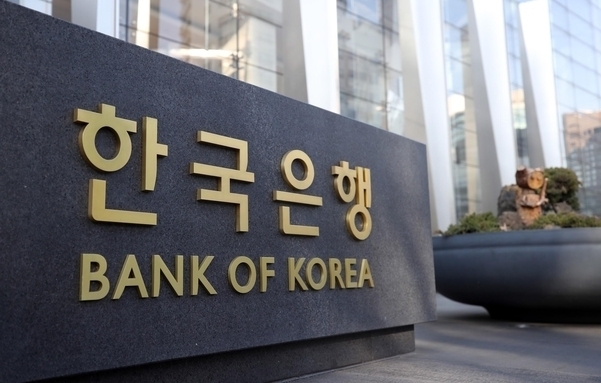S. Korea’s ample liquidity mostly remains in bank savings
Policymakers perplexed over lack of market stimulus effect
By Bae HyunjungPublished : July 27, 2020 - 16:56

South Korea’s lenders saw savings by customers climb rapidly during the first six months of the year, along with household and corporate loans, central bank data showed Monday.
Such a visible rise was seen as a signal that the ample liquidity triggered by expansionary fiscal and monetary policies did not spill out into the market, despite policy intentions.
According to data from the Bank of Korea, the credit balance of domestic banks came to 1.86 quadrillion won ($1.55 trillion) as of the end of June.
The latest amount was up 108.7 trillion won from six months earlier and also marked the steepest rise in the first half of a year so far, officials said.
From February to May, when uncertainties due to COVID-19 were the highest, the on-month rise ranged in the 33-35 trillion won. The figure fell to the 18 trillion won range in June, when the number of new infections seemed to dwindle away.
The uptrend in bank credit balance came in line with the increased volume of loans, indicating that economic units were inclined to lend and retain cash amid the prolonged epidemic crisis.
In the January-June period, the total loans -- corporate and household -- climbed 118.3 trillion won from a year earlier, while the received credit rose 108.7 trillion won during the same period.
“The rapid increase in the amount of received credit is closely related to the fast expansion of lending,” said an official of BOK.
“It is plausible that cash-strapped households or companies secured liquidity through loans, on the back of supportive fiscal and monetary policies, but chose to retain cash in deposits instead of spending.”
Such ample liquidity that is not spent on actual businesses eventually leads to a bubble in the market, according to Cho Young-mu, senior researcher at LG Economic Research Institute.
“Given the current circumstances, possibilities of inflation are low, but prices soar in the US stock market or Korea’s real estate markets as the surplus liquidity flocks to specific assets,” he said.
Addressing the dilemma, the Ministry of Economy and Finance suggested that additional actions may be necessary to circulate funds in the market.
“If the recently increased bank savings are intended as mid- or long-term reserves, (the government) may have to introduce more measures to revitalize spending,” said an official, while calling for a wait-and-see approach.
By Bae Hyun-jung (tellme@heraldcorp.com)








![[Graphic News] More Koreans say they plan long-distance trips this year](http://res.heraldm.com/phpwas/restmb_idxmake.php?idx=644&simg=/content/image/2024/04/17/20240417050828_0.gif&u=)
![[KH Explains] Hyundai's full hybrid edge to pay off amid slow transition to pure EVs](http://res.heraldm.com/phpwas/restmb_idxmake.php?idx=644&simg=/content/image/2024/04/18/20240418050645_0.jpg&u=20240419100350)





![[From the Scene] Monks, Buddhists hail return of remains of Buddhas](http://res.heraldm.com/phpwas/restmb_idxmake.php?idx=652&simg=/content/image/2024/04/19/20240419050617_0.jpg&u=20240419175937)

![[KH Explains] Hyundai's full hybrid edge to pay off amid slow transition to pure EVs](http://res.heraldm.com/phpwas/restmb_idxmake.php?idx=652&simg=/content/image/2024/04/18/20240418050645_0.jpg&u=20240419100350)

![[Today’s K-pop] Illit drops debut single remix](http://res.heraldm.com/phpwas/restmb_idxmake.php?idx=642&simg=/content/image/2024/04/19/20240419050612_0.jpg&u=)